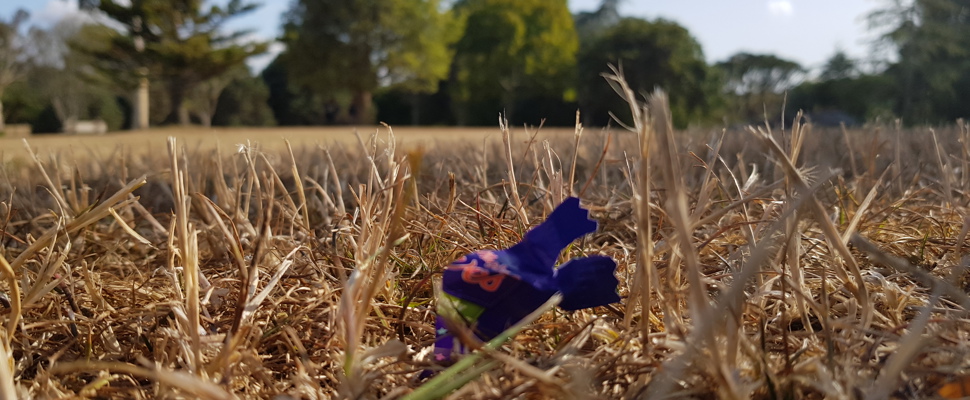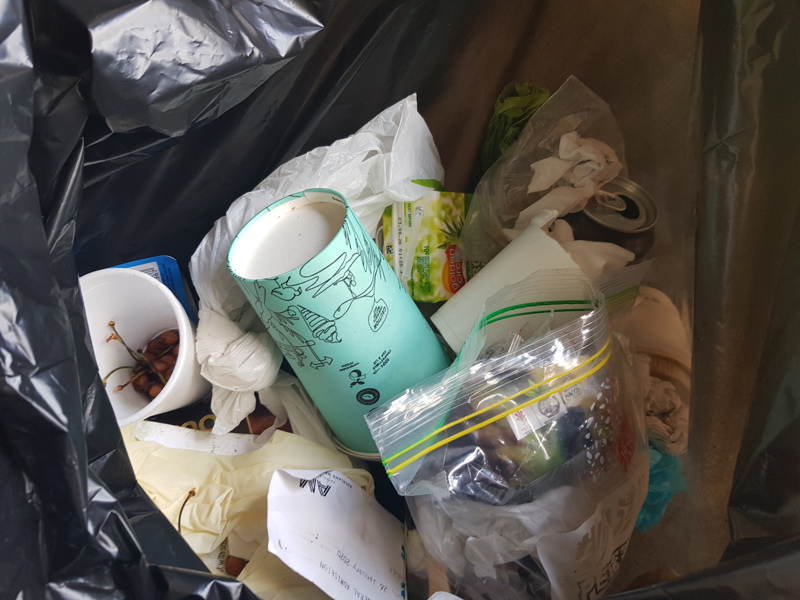
The Gardens is going zero waste
Help us to reduce waste in the Gardens
The Auckland Botanic Gardens is becoming zero waste – and we are asking our visitors to help.
More than a million visitors come to the Gardens every year, strolling, picnicking, walking their dogs, eating at café Miko and enjoying the beauty of our plantings.
But the Gardens also produce waste, from plant clippings to lolly wrappers, fast food boxes to plastic potting bags. Plenty of waste, in fact. Some of it recyclable, compostable or reusable and a lot of it not.
Every month the Auckland region produces a volume of rubbish to fill a rugby field 10 stories high! About 1.6 million tonnes of waste goes to landfill every year – that averages about 20kg of waste per person each week. Reducing this is something Aucklanders have asked their Council to work on. In response, the Council has set a target of Auckland being a zero waste city by 2040.
Zero waste is a global idea, one that seeks to slowly eliminate waste from our daily lives through recycling, re-using and waste minimisation.
The Zero Waste International Alliance defines zero waste as “a goal that is ethical, economical, efficient and visionary, to guide people in changing their lifestyles and practices to emulate sustainable natural cycles, where all discarded materials are designed to become resources for others to use.”

Some of the rubbish we are hoping to reduce in the Gardens.
In 2018, the Gardens decided to play our part and move towards zero waste. Our first step was to stop and think about waste in the Gardens, where it comes from, how much there is and how we can reduce it. We began auditing how much rubbish was collected in each of our bins. We looked at how we could reduce or reuse the waste we produce.
One of the questions we are asking ourselves is whether to aim, as Aucklanders have done in the Regional Park network, to remove all rubbish bins, leaving only recycling depots. Already a few of the least used rubbish bins have been removed from quieter parts of the Gardens and more will follow.
On busy weekends some rubbish bins will need to be emptied three times a day. A Gardens without bins would mean visitors would have to take their own waste home with them to recycle as much as possible using the Council’s curbside service.
We know the zero waste goal is not something we can achieve alone. We need our visitors to share in the aspiration.
All successful change starts with a conversation. So, if you’d like to share your thoughts please email: botanic.gardens@aucklandcouncil.govt.nz
What are we doing to reduce our waste?
We compost 95% of our plant waste on site, the remaining 5% are noxious weeds and are sent offsite for safe processing.
Staff take home their own recycling – cans, plastics, and glass (paper is collected on site).
Suitable surplus material (plants, landscape material, rubber hosing etc) are donated to Kauri Kids Daycare for the children to play with and transform into active learning activities.
The Botanic Gardens’ nursery grows 65,000 plants for the Auckland’s regional parks revegetation programme. Each of these seedlings pushes its growing roots into soil contained by the walls of a black polythene pot. Re-using pots has become the norm and a recycling provider has been found to take those that cannot be re-used.
Whenever suitable the cut offs of certain plants (palms, bamboo) are taken to Auckland Zoo to feed the elephants.
Our staff have become passionate about zero waste. It is an idea that has taken root in the Gardens. Now, we try to avoid buying items that cannot be recycled or that are overpackaged, we reuse items as much as possible and when they cannot be reused, we recycle as much as is possible. These ideas have become part of our work culture and we are proud of the results we have achieved – though we know we have further to go.
As part of our on-site programme for schools our education team teaches students the joys of composting – ‘from garden waste to garden gold’. The kids learn about nutrient cycle and how nature deals with its own organic rubbish.